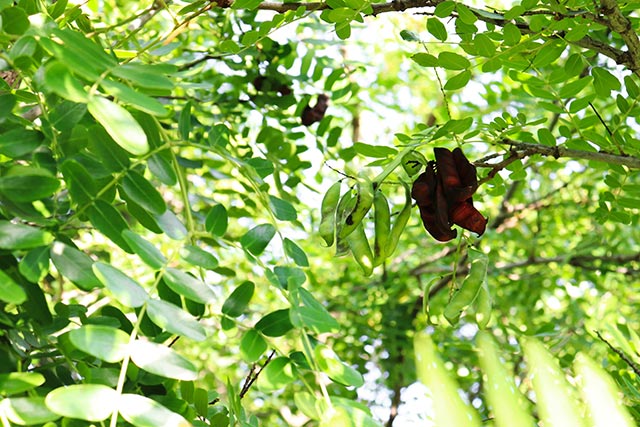Essential oils from the verbena family of plants found to protect against liver and lung cancers
09/02/2019 / By Janine Acero

Medicinal plants contain compounds that are known to interfere with the development of diseases such as cancer, and essential oils from these aromatic plants are some of the most potent natural anticancer agents. A study published in the Journal of Essential Oil Research investigated the anti-proliferation effect and cytotoxicity of the essential oil from a species of flowering plant called Lippia alba on human liver and lung cancer cells.
Usually found on brushy hillsides and along roadsides, L. alba, commonly referred to as bushy lippia, is a species of flowering plant in the family Verbenaceae that is native to southern Texas in the U.S., Mexico, the Caribbean, Central America, and South America.
L. alba is used as a food flavoring and for medicine. It is frequently cultivated throughout Central America as a medicinal plant. Tea made from its leaves is a common natural remedy in Central America for both intestinal and respiratory problems, including influenza.
L. alba is cultivated for its essential oil in Argentina. Its main compound is dihydrocarvone. Other compounds include limonene, pinene, linalol, and camphor.
In the current study, the researchers evaluated the essential oils from L. alba (LaEOs) for their cytotoxicity on human cancer culture cells and the mechanisms involved. They investigated the intraspecific chemical differences in the composition (chemotypes) and the notable chemical diversity of their volatile secondary metabolites.
They found that the LaEOs exhibited selective cytotoxicity against human hepatocarcinoma cell HepG2 (liver cell line) and human alveolar basal epithelial cell A549 (lung cell line). The mechanism involved cell cycle arrest and apoptosis induction.
Tagetenone chemotype (LaEOta) treatment was found to inhibit enzymes involved in cholesterol biosynthesis such as 3-hydroxy-3-methylglutaryl-coenzyme A reductase and farnesyl pyrophosphate. Based on these results, the researchers concluded that tagetenone chemotype could be a chemopreventive and chemotherapeutic agent against human liver and lung cancers.
Essential oils with chemopreventive and chemotherapeutic properties
Essential oils are widely used remedies for a lot of health problems because of their good bioavailability, low toxicity and affordable cost. Below are some of the most common essential oils for managing the side effects of conventional cancer treatments such as chemotherapy. (Related: Agarwood essential oil demonstrates promising anti-cancer properties, researchers find.)
- Citrus oils — The active component of citrus oils called d-limonene is confirmed to be a potent anticancer agent.
- Clary sage — Clary sage oil contains antioxidants, one of which, called sclareol, was found to induce apoptosis or cell “suicide” in cancer cell lines.
- Frankincense — Brain cancer patients experience a symptom called cerebral edema or swelling in the head after their tumors have been surgically removed or if they are undergoing radiation therapy. Frankincense is found to relieve edema, as well as other symptoms like depression and compromised immune system.
- Lavender — Lavender essential oil is a known relaxant, promoting healthy sleep and reduced stress. It is also a powerful antioxidant that protects the brain against injury from free radicals.
- Lemongrass — Lemongrass was found to trigger apoptosis, particularly the essential oil of Cymbopogon flexuosus (a variety of lemongrass) for its cytotoxic properties against human and rodent cancer cell lines.
- Myrrh — A 2013 study found that myrrh, when on its own or combined with frankincense, is cytotoxic against five tumor cell lines: MCF-7, HS-1, HepG2, HeLa and A549.
- Peppermint and spearmint — These mentholated essential oils are known to effectively relieve emetic side effects of chemotherapy and other cancer treatments that induce nausea and vomiting.
- Thyme — Thyme essential oil can balance and regulate hormones. It was found to be most effective against prostate, lung, and breast cancers.
EssentialOils.news has more on the potent healing benefits of these substances on cancer therapy side effects.
Sources include:
Tagged Under: alternative medicine, anticancer, cytotoxic, essential oils, herbal medicine, Lippia alba, Liver cancer, lung cancer, natural cures, natural medicine, plant medicine, prevention, remedies



















